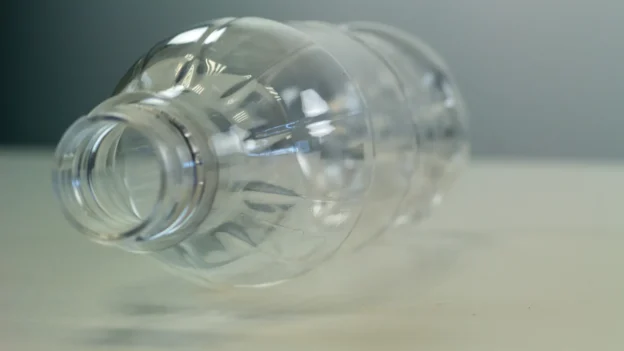On November 4, the UPCYCLE project was presented in Ghent. An initiative funded by Horizon Europe through the European Executive Agency for Health and Digitization(HADEA), and seeks to respond to one of the most urgent environmental challenges: the conversion of non-recyclable plastic waste into packaging solutions with high recyclability rates and minimal environmental persistence.
The promotion and transformation of plastics in the UPCYCLE project
This project is coordinated by Aalborg University, where the consortium brings together 19 partners from 12 countries, including the AIMPLAS Technology Center. This alliance works to create new value chains that reconvert complex plastic waste, currently destined for incineration or landfill, into materials suitable for food and personal care packaging.
The center researches and produces at scale new polyesters and copolyesters, such as PEF, PBAF and PLA-based blends. These formulations are processed by reactive extrusion, injection molding and advanced blow molding techniques, adapted for different types of packaging.
In addition to directing the evaluation of the behavior of these materials at the end of their useful life, AIMPLAS performs elementary tests, such as: biodegradation models, compostability in industrial and domestic environments, and environmental impact analysis in soils, water and seas.
It also promotes principles of safe and sustainable design, process intensification through artificial intelligence, and polymerization strategies and circularity-oriented polymerization strategies. This includes the development of packaging for fresh food, beverage bottles and delicate short-life containers, where biodegradability and performance are essential.
Among the medium-term targets, the reduction of greenhouse gases by at least 30% compared to current bioplastics is mentioned. By 2029, the technologies developed are expected to be fully ready for commercial adoption, aligned with European guidelines on single-use plastics and circular economy.
The UPCYCLE consortium is composed of universities, technology centers, bioplastics companies, supermarkets and innovation entities such as RWTH Aachen, DTU, TECNARO, BIO-MI, EVYAP, EROSKI and the Bio Base Europe pilot plant. This multidisciplinary collaboration ensures a robust approach from waste collection to final product validation.
Through this structure, the project reaches the entire plastic value chain: from the collection and classification of waste to the formulation of new materials, their processing, validation and subsequent arrival on the market.
UPCYCLE also contemplates the adaptation of its solutions to different geographical and regulatory locations within the European Union, ensuring their scalability. In parallel, the partners are working on communication and knowledge transfer strategies to facilitate the adoption of these technologies by manufacturers and distributors.
Source and photo: AIMPLAS

